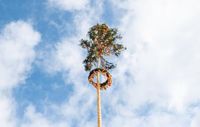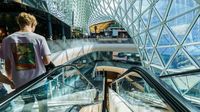On May 1st, Germany and many other countries celebrate Labor Day, a holiday that commemorates the achievements of the labor movement and reflects on its tumultuous history. This year, the day is marked not only by demonstrations and political rallies but also by various cultural events and local traditions.
The origins of Labor Day can be traced back to the United States in the late 19th century. On May 1, 1886, American labor unions organized a nationwide strike to demand an eight-hour workday. This movement escalated into the infamous Haymarket Riots in Chicago, where a bomb was thrown into a crowd of demonstrators on May 4, resulting in the deaths of twelve people, including a police officer. The violent aftermath of these protests left a lasting impact on the international labor movement, establishing May 1st as a day of struggle for better working conditions.
In Europe, the first international celebration of Labor Day occurred in 1890, led by socialist and communist organizations. In Germany, May 1 was officially recognized as a public holiday in 1919 during the Weimar Republic, symbolizing the acknowledgment of workers' rights. However, under the National Socialist regime in 1933, the day was repurposed as the "Day of National Labor," stripping it of its original meaning. It wasn't until after World War II that the day was reclaimed by labor unions as a symbol of solidarity and struggle.
Today, May 1st serves as a platform for unions and political groups to organize rallies and demonstrations aimed at raising awareness for current social and economic issues. In cities like Berlin and Hamburg, traditional left-wing demonstrations often take place, sometimes resulting in clashes with law enforcement. This year, the "Revolutionary May 1 Demonstration" in Berlin's Kreuzberg district is expected to draw significant attention, with over 5,000 police officers deployed to manage the events and prevent violence.
Alongside the political significance of Labor Day, various cultural traditions also take center stage. One notable custom is the Maypole celebration, where communities erect a decorated tree, symbolizing spring and fertility. The tradition includes the playful theft of the Maypole from neighboring villages, adding a festive spirit to the day.
In addition to these longstanding traditions, local events are planned across Germany. For instance, in Ravensburg, the German Trade Union Confederation (DGB) will host a rally at Marienplatz at 10:30 AM, featuring speeches from prominent labor leaders. In Friedrichshafen, another rally will occur at the music shell, highlighting the importance of workers' rights.
For those looking to enjoy the day outside of the political sphere, various cultural events are available. Schloss Achberg will host a May festival featuring the choir DaCapo, with food and drinks available for attendees. Additionally, the Tuning-World exhibition in Friedrichshafen, running from May 1st to May 4th, will showcase over 1,000 tuned cars, attracting car enthusiasts from across the region.
In the Bodensee-Oberschwaben region, the Moorbahn train will start its season on May 1st, offering scenic rides through nature, complete with historical storytelling. Visitors can also explore the Kräuter- und Blümlesmarkt at the Bauernhausmuseum in Wolfegg, where local vendors will sell plants and herbs, alongside lectures on gardening.
Despite the holiday's significance, not all businesses will be closed. In Mecklenburg-Vorpommern, certain shops, such as gas stations and pharmacies, are permitted to operate on Labor Day, although the majority of stores will remain shuttered. A new regulation allows shops in tourist areas to open more frequently on Sundays and public holidays, promoting winter tourism and enhancing visitor experiences.
Interestingly, while Labor Day is a public holiday in Germany, it is not universally recognized in Switzerland. Only specific cantons observe May 1st as a holiday, allowing for a unique opportunity for visitors from non-holiday regions to enjoy a quieter atmosphere and shop in open stores.
The day is also marked by the celebration of Walpurgis Night, which occurs on the night of April 30th. Traditionally believed to be a night when witches gathered on the Brocken mountain, many towns host festivities where people dress up and celebrate with bonfires.
As May 1st approaches, many Germans prepare for a day of reflection, celebration, and activism. Whether attending a rally, participating in local traditions, or simply enjoying a day off, the significance of Labor Day remains a powerful reminder of the ongoing struggle for workers' rights and social justice.
In conclusion, Labor Day on May 1st serves as a multifaceted celebration in Germany, blending historical significance with contemporary social issues and local traditions. As communities come together to honor the achievements of the labor movement, the day highlights the importance of solidarity and the ongoing fight for workers' rights.



